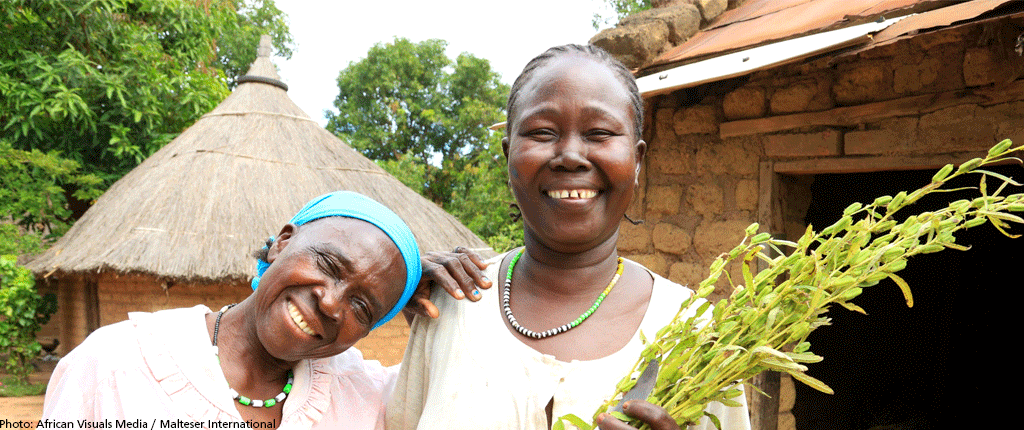
South Sudan: Improving livelihoods for displaced families
As the conflict in South Sudan lingers, the most vulnerable population groups in the country, like children and women continue to suffer from the resulting food crisis. The ongoing civil war has led to the internal displacement of about 4 million people and almost half of the population have been classified as severely food insecure. Continued conflict, humanitarian access constraints, climate change and economic instability are worsening an already precarious situation.
To avoid further deterioration of the humanitarian situation, we are providing livelihood support in the form of crop and vegetable seeds, agricultural tools and fishing kits to the most vulnerable households in Raja County, Western Bahr-El Ghazal State. The provision of seeds serves to augment their agricultural output, while increasing food security in the long-run.
The project takes place in the context of the United Nations Food Security Cluster response plan for South Sudan. The aim of the cluster is to enhance cooperation and partnerships between humanitarian organisations for better results. With almost half of the population classified as severely food insecure, humanitarian assistance is critical to avert further deterioration into critical levels.
- The most food insecure and vulnerable households receive emergency livelihood support.
- Increased agricultural production output for vulnerable households for a longterm sustenance
- Increased availabiltiy of crops on local markets
- Provision of crop and vegetable seeds, agricultural tools, and fishing kits for vulnerable households
- Training on agricultural techniques and the proper use of tools
- Community mobilization and sensitization through coordination with local leaders and authorities.
Country info
Capital: Juba
Area: 644.329 km²
Population: approx. 12 million
Project data
Financing: Food and Agricultural Organization (FAO)








